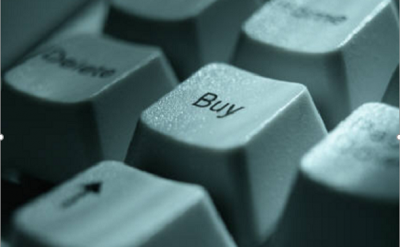When it comes to partnering with influencers ‘fit’ is more important than celebrity status

“The word ‘influencer’ … is such a buzz word – there has been influencer inflation over the last five years where everybody now is an influencer. I am a macro-influencer, you are a micro-influencer,” and as a result the word has lost its meaning and to a large extent its impact, said John Durant, the founder of Wild Ventures – an influencer-based venture fund focused on consumer health.
He explained to attendees at NOSH Live in New York City last month that many people misuse the word ‘influencer’ to refer to people or celebrities with large networks or followers on social media, but he noted “just because someone has followers, doesn’t mean they influence people.”
Similarly, “micro-influencers” with smaller networks or followers might hold sway, but usually if they do it is because their endorsements are authentic – and cannot be bought or manufactured. And if they can, at best they create “a little bit of buzz upfront,” but no real growth or loyalty unless the endorsement is real and the product’s or brand’s underlying fundamentals are on point, Durant said.
The reality, he added, is “influencers are not a magic wand.”
But that doesn’t mean all hope is lost – there are ways for young brands to obtain the results they want if their product is solid and they connect with an ‘influencer’ who is the right fit – something that Durant says his team at Wild Ventures focuses on “more than virtually any other fund.”
Finding the right influencer
When it comes to finding the right influencer, Durant says companies should first look for people whose values, identity and nutritional philosophy align with their brand and who will tout a product because they love it – not because they are being paid.
They should also look for people who actually motivates followers to take action or who are considered “domain experts” and are recognized for their experience or knowledge in an area.
As an example of someone motivational, Durant pointed to Melissa Hartwig Urban of Whole30, and as a domain expert he pointed to Primal Kitchen’s Mark Sisson.
In both cases, earning their recommendation is not as easy as sending free product or writing a check. It usually involves multiple meetings, getting to know each other and ensuring that if they go to bat for the brand they will not later regret associating their name and reputation with the product.
Durant also advises entrepreneurs to do their homework before they approach a potential supporter or tribe – noting they likely will only get one chance to win them over.
“Tribes have their own cultures and rituals. They have their own vocabulary,” and entrepreneurs need to learn them before reaching out, he said. “I can’t tell you how many times a founder reached out to someone in the CrossFit space and they misspelled the word CrossFit. They don’t capitalize the ‘f.’ As soon as I see that, I am just like, this person is not part of the tribe. They can’t even get the name right.”
Another alternative to tapping into an existing tribe is for a brand to create its own community by facilitating relationships between its consumers, similar to how Weight Watchers gained traction by hosting support groups for its shoppers to share their successes and struggles, Durant said.
A-list celebrities are out
For the most part, these guidelines preclude working with A-list celebrities, who Durant says “are massively overrated” – especially as investors.
He explained that celebrities often are quiet wealthy, which means the amount of equity or money that a startup could offer “isn’t meaningful to them.” As a result, he said, “my expectation when any A-list celebrity gets involved is zero. If they do anything above zero, I am pleasantly surprised.”
Another reason to avoid A-list celebrities as investors is their network is often optimized for Hollywood or their primary industry, which usually doesn’t transfer over to the food and beverage industry. This means, startups likely will not get the expertise they need to grow in exchange for the equity they trade away, he said.
There are exceptions, Durant acknowledged, but in those cases it comes back to finding a good fit, such as when 50 Cent and Vitamin Water or Jessica Alba and The Honest Co.
In those examples, each celebrity placed more than money on the line – they also staked their reputation, which for celebrities can be more valuable than money “because if there is one thing they care about it is what other people think about them,” Durant said.
Working with mercenaries
While brands will get the most lift by working with influencers who love their product, mercenaries can extend sales and brand awareness in a more limited capacity and should not be discounted, Durant said.
He explained that Wild Ventures often helps companies develop affiliate partnerships that can generate short term cash, but it prefers for brands to develop their own direct-to-consumer ecommerce base if possible.
“There are a lot of mercenaries out there and we will structure those commissions so they are attractive to people who are motivated by financials,” but won’t dilute the brand’s equity with its end consumer, he said.
This includes working with affiliates who still share common values with brand and whose followers are the target demographic.
A more effective way to build an online following is to build out direct-to-consumer ecommerce platform, which will allow the brand to own the customer relationships, have higher margins, better cashflow, launch products with less risk and generate awareness at the same time, he said.
Ultimately, though, the distribution channels and the influencer partnerships are not as important as the product, Durant said, noting that only a great product or great brand will generate great results.












